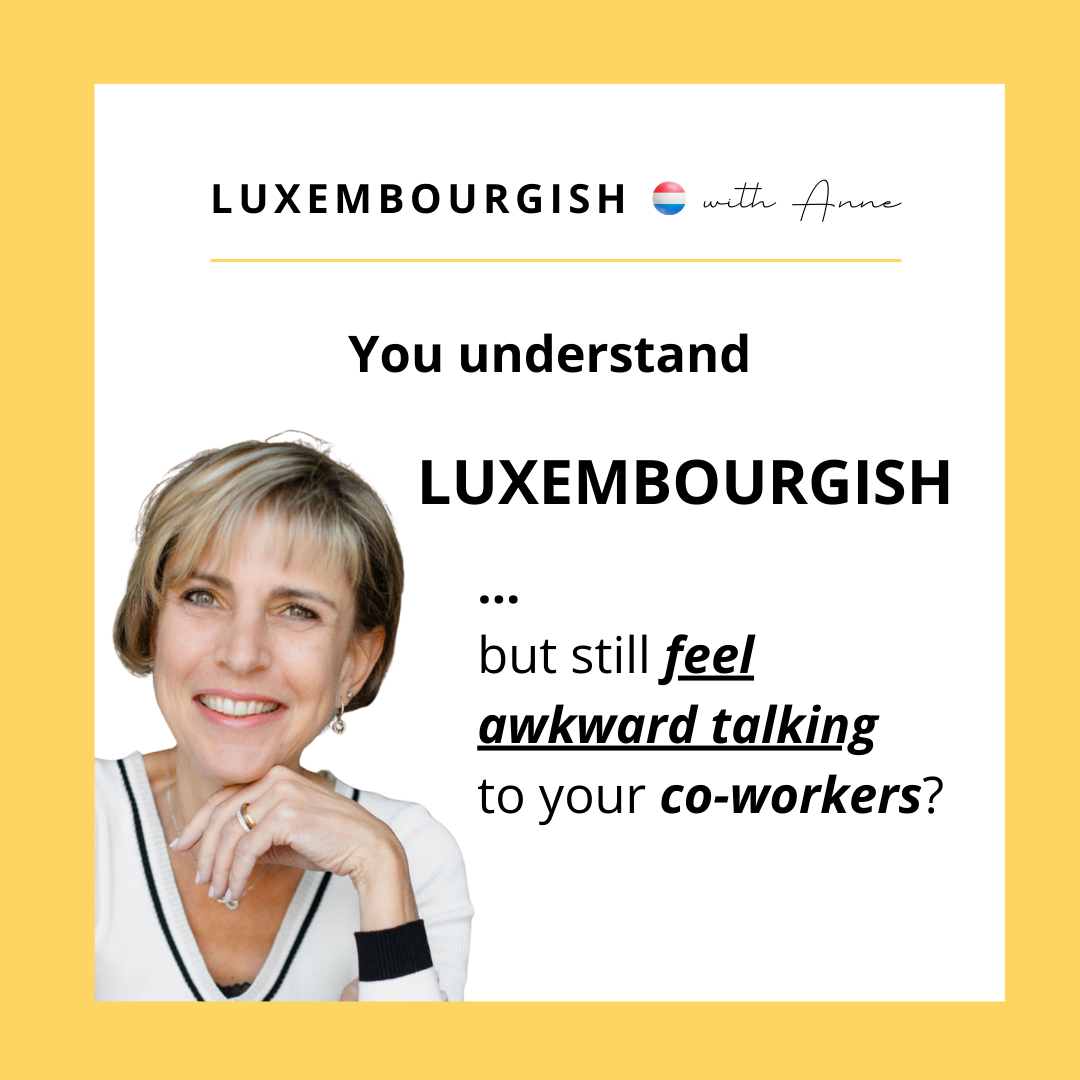The English word when can be expressed in Luxembourgish by 3 different words:
wéini, wann & wéi
These three words are very confusing for most students learning Luxembourgish. So I will help you to understand how and when to use wéini, wann and wéi.
Wéini
Wéini is a question word related to time. It asks or relates to the question when?
2 situations call out for wéini:
1 Use wéini when you want to ask a question.
Beispiller (Examples)
- Wéini fiers du an d’Vakanz? – When do you (informal) go on holidays?
- Wéini hutt dir Congé? – When are you (plural) on leave?
- Säit wéini wunns du an der Stad? – Since when have you been living in Luxembourg city?
2 Use wéini, when you are not sure what someone is doing, or when someone / somtehing is arriving.
Beispiller (Examples)
- Ech weess net, wéini den Zuch kënnt. – I don’t know when the train is arriving.
- Ech weess net, wéini den Noper plënnert. – I don’t know when the neighbour is moving.
- Mir wëssen nach net, wéini mir an d’Vakanz ginn. – We still don’t know, when we go on holidays.
Wann
Wann is NOT a question word. Wann is a conjunction word. A conjunction introduces a subordinate clause and then the word order changes.
I will cover in this lesson 4 main uses of wann.
1 wann = in case of / if
Beispiller (Examples)
- Wann et reent, bleiwen ech doheem. – If it rains, I stay at home.
- Sot mir Bescheed, wann dir op Besuch kommt. – Tell me, when you are coming to visit us.
2 wann = when (while)
Beispiller (Examples)
- Doheem ass d’Tëlee aus, wa(nn)* mir iessen. – At home the tv is off, when we’re eating.
- Wann ech kachen, lauschteren ech de Radio. – When I’m cooking, I listen to the radio.
In these two examples we could also have used the word wärend while.
*wann is subject to the n-rule!
3 wann = when (as soon as)
Beispiller (Examples)
- Ech gi(nn) bei den Dokter, wann ech krank sinn. – I go to the doctor, when I am sick.
- So mir Bescheed, wann s du fort gees. – Tell me, when you are leaving.
4 wann is used in wish-phrases
Beispiller (Examples)
- Wann ech pensionnéiert sinn, da(nn) maachen ech eng Weltrees. – When I’m retired, I will do a world trip.
Wéi
In a sentence expressed in the past tense or perfect tense wann is replaced by wéi.
Beispiller (Examples)
- Wéi ech jonk war, sinn ech ëmmer bei meng Boma an d’Vakanz gaang. – When I was young, I always went to my grandmother on holidays.
- Et war scho(nn) spéit, wéi ech gëschter heemkomm sinn. – It was already late, when I came home yesterday.
Let’s practice:
Translate the following sentences into Luxembourgish:
- We still don’t know, when we go on holidays.
- When are you (plural) on leave?
- When (while) driving the care, you are not allowed to be on the phone.
Check the solution by downloading the PDF and practice with MORE sentences to translate !
Get the PDF!
I hope you liked it and found it useful. And …. why not sharing this lesson with your friends:-)





